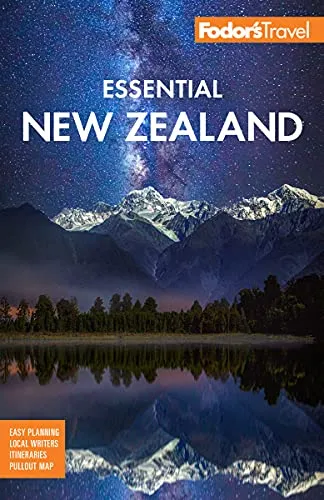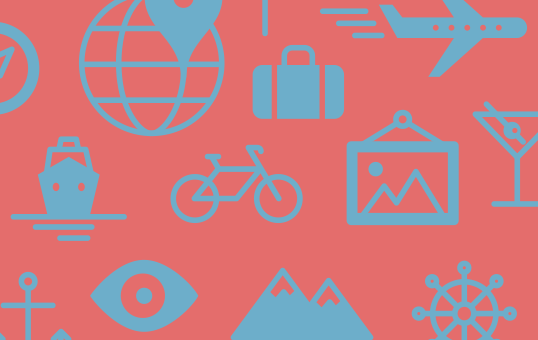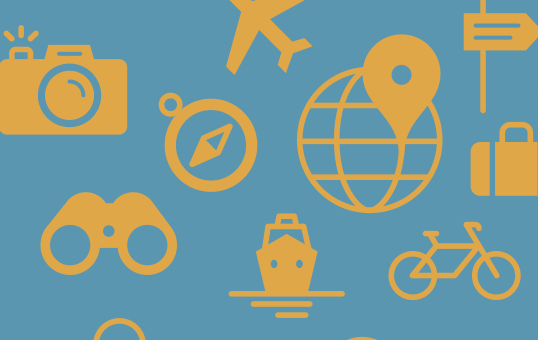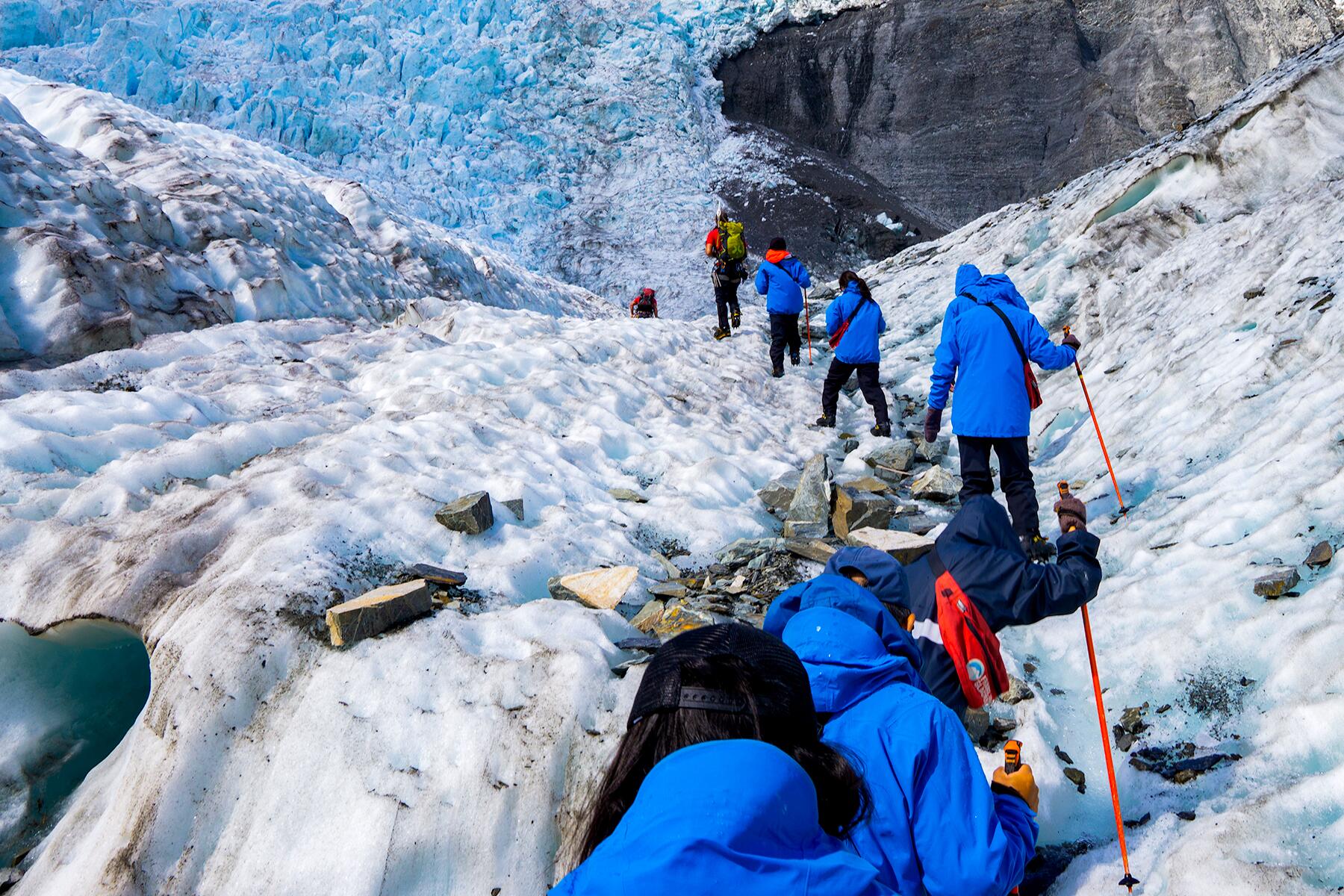Auckland
Auckland
Auckland is called the City of Sails, and visitors flying in will see why. On the East Coast is the Waitemata Harbour—a M?ori word meaning sparkling waters—which is bordered by the Hauraki Gulf, an aquatic playground peppered with small islands where many Aucklanders can be found "mucking around in boats."
Not surprisingly, Auckland has some 70,000-plus boats. About one in four households in Auckland has a seacraft of some kind, and there are 102 beaches within an hour's drive depending on the traffic; during the week many are quite empty except for the two weeks that include Christmas and New Year. Even the airport is by the water; it borders the Manukau Harbour, which also takes its name from the M?ori language and means solitary bird.
According to M?ori tradition, the Auc...
Read MoreAuckland is called the City of Sails, and visitors flying in will see why. On the East Coast is the Waitemata Harbour—a M?ori word meaning sparkling waters—which is bordered by the Hauraki Gulf, an aquatic playground peppered with small islands where many Aucklanders can be found "mucking around in boats."
Not surprisingly, Auckland has some 70,000-plus boats. About one in four households in Auckland has a seacraft of some kind, and there are 102 beaches within an hour's drive depending on the traffic; during the week many are quite empty except for the two weeks that include Christmas and New Year. Even the airport is by the water; it borders the Manukau Harbour, which also takes its name from the M?ori language and means solitary bird.
According to M?ori tradition, the Auckland isthmus was originally peopled by a race of giants and fairy folk. When Europeans arrived in the early 19th century, however, the Ng?ti-Wh?tua tribe was firmly in control of the region. The British began "negotiations" with the Ng?ti-Wh?tua in 1840 to purchase the isthmus and establish the colony's first capital. (The Government is still dealing with the fallout from the British negotiations and redress for land theft continues between Ng?ti-Wh?tua and the Crown.) In September of that year the British flag was hoisted to mark the township's foundation, and Auckland remained the capital until 1865, when the seat of government was moved to Wellington. Aucklanders expected to suffer from the shift; it hurt their pride but not their pockets. As the terminal for the South Sea shipping routes, Auckland was already an established commercial center. Since then the urban sprawl has made this city of approximately 1.4 million people one of the world's largest geographically.
A couple of days in the city will reveal just how developed and sophisticated Auckland is—the Mercer City Survey 2014 saw it ranked as the third-highest city for quality of life—though those seeking a New York in the South Pacific will be disappointed. Auckland is more get-up and go-outside than get-dressed-up and go-out. That said, most shops are open daily, central bars and a few nightclubs buzz well into the wee hours, especially Thursday through Saturday, and a mix of M?ori, Pacific people, Asians, and Europeans contributes to the cultural milieu. Auckland has the world's largest single population of Pacific Islanders living outside their home countries, though many of them live outside the central parts of the city and in Manukau to the south. The Samoan language is the second most spoken in New Zealand. Most Pacific people came to New Zealand seeking a better life. When the plentiful, low-skilled work that attracted them dried up, the dream soured, and the population has suffered with poor health and education. Luckily, policies are now addressing that, and change is slowly coming. The Pacifica Festival in March is the region's biggest cultural event, attracting thousands to Western Springs with fantastic food, stunning performances and art and craft from the region. The annual Pacific Island Secondary Schools’ Competition, also in March, sees young Pacific Islander and Asian students compete in traditional dance, drumming, and singing. This event is open to the public.
At the geographical center of Auckland city is the 1,082-foot Sky Tower, a convenient landmark for those exploring on foot and some say a visible sign of the city's naked aspiration. It has earned nicknames like the Needle and the Big Penis—a counterpoint to a poem by acclaimed New Zealand poet James K. Baxter, which refers to Rangitoto Island as a clitoris in the harbor.
The Waitemata Harbour has become better known since New Zealand staged its first defense of the America's Cup in 2000 and the successful Louis Vuitton Pacific Series in early 2009. The first regatta saw major redevelopment of the waterfront. The area, where many of the city's most popular bars, cafés, and restaurants are located, is now known as Viaduct Basin or, more commonly, the Viaduct. A recent expansion has created another area, Wynyard Quarter, which is slowly adding restaurants.
These days, Auckland is still considered too bold and brash for its own good by many Kiwis who live "south of the Bombay Hills," the geographical divide between Auckland and the rest of New Zealand (barring Northland). "Jafa," an acronym for "just another f—ing Aucklander," has entered the local lexicon; there's even a book out called Way of the Jafa: A Guide to Surviving Auckland and Aucklanders. A common complaint is that Auckland absorbs the wealth from the hard work of the rest of the country. Most Aucklanders, on the other hand, still try to shrug and see it as the parochial envy of those who live in small towns. But these internal identity squabbles aren't your problem. You can enjoy a well-made coffee in almost any café, or take a walk on a beach—knowing that within 30 minutes' driving time you could be cruising the spectacular harbor, playing a round at a public golf course, or even walking in subtropical forest while listening to the song of a native tûî bird.
Recommended Fodor’s Video
Neighborhoods
Hotels
Things to Do
Things to Do
Find the perfect tours and activities in Auckland.
Where to Eat
Where to Eat
Need to Know
Need to Know
Language
EnglishNearby Airports
AKLElectrical Outlets
230-40V/50Hz; Wall outlets take slanted three-prong plugs and plugs with two flat prongs set in a V.Currency
New Zealand dollarLanguage
EnglishElectrical Outlets
230-40V/50Hz; Wall outlets take slanted three-prong plugs and plugs with two flat prongs set in a V.Currency
New Zealand dollarNearby Airports
AKLWhen to Go
Auckland's weather can be unpredictable, but don't let that put you off. There is always something to do whatever the weather. The warmest months...Read More
Neighborhood Guides
Discover the best neighborhoods in Auckland with curated recommendations from our editors.
essentials
transportation
resources
Local Weather
When to Go
Auckland's weather can be unpredictable, but don't let that put you off. There is always something to do whatever the weather. The warmest months...Read More
Neighborhood Guides
Discover the best neighborhoods in Auckland with curated recommendations from our editors.
Local Weather
When to Go
Auckland's weather can be unpredictable, but don't let that put you off. There is always something to do whatever the weather. The warmest months...Read More
Neighborhood Guides
Discover the best neighborhoods in Auckland with curated recommendations from our editors.
essentials
transportation
resources
Articles
Articles See All
Guidebooks
Guidebooks
Our worldwide travel correspondents bring you the best and most up-to-date coverage of over 7,500 global destinations.
Shop NowFodor's Essential New Zealand
Whether you want to explore Auckland, bungee-jump in Queenstown, or
...













